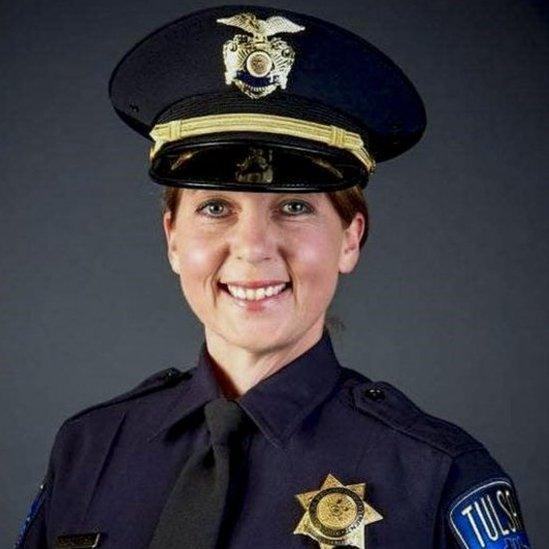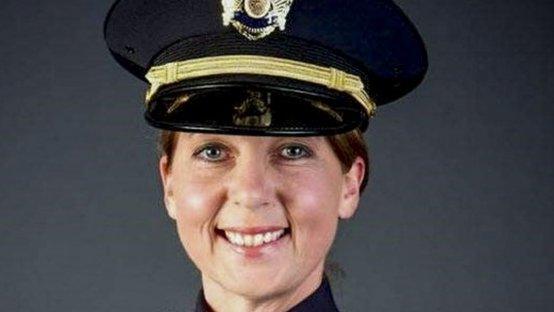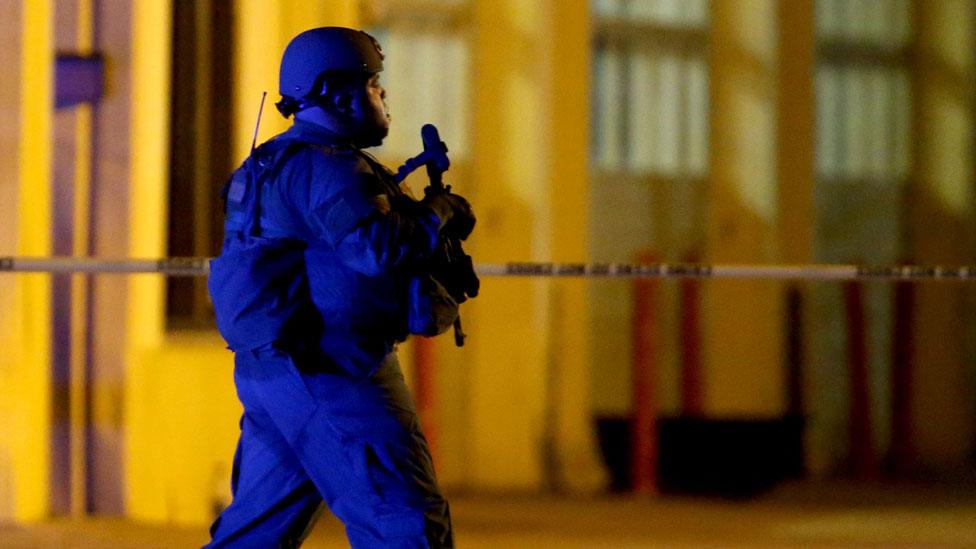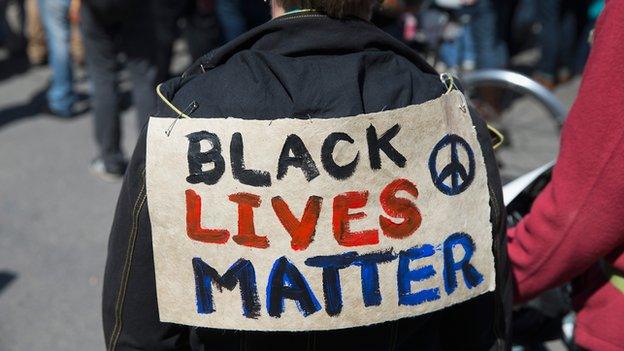Protests as police woman who shot man teaches class on shootings
- Published

Police said Betty Shelby (pictured) fired after Terence Crutcher failed to obey commands
A policewoman who was acquitted of manslaughter after fatally shooting an unarmed black man is now teaching a course on such "critical incidents".
The lesson, entitled "Surviving the Aftermath of a Critical Incident" has led to protests in Oklahoma where the shooting, and the class, both occurred.
Officer Betty Jo Shelby - who is white - shot and killed an unarmed black father of four in 2016 in Tulsa County.
She was acquitted but a jury questioned if she should be banned from policing.
She was assigned to permanent desk duty after a jury ruled in 2017 that "serious consideration" must be "given to whether she be allowed to return to practicing law enforcement".
Now, only two years after being acquitted over the death of Terence Crutcher, she is working as a police officer in a neighbouring county and teaching a course on the fallout after a police shooting in the very same county where she was accused of manslaughter.
"My class is not about the shooting and I do not discuss the shooting," Ms Shelby said in a statement on Monday to KTUL-TV, after residents complained that she should not be permitted to teach her state-approved course in the county where the shooting occurred.
Policewoman acquitted in Tulsa shooting
"A critical incident is an event that happens to someone that will test the limits of their coping skills," her statement continued.
"I faced many challenges that I was unprepared for such as threats to my life by activists' groups to loss of pay. My class is to help others by sharing some of the skills I used to cope with the stress of my critical incident."
Police and helicopter footage captured the moment when Crutcher died.
Dashcam footage shows shooting of Terence Crutcher in Tulsa
Video shows him walking with his arms up towards his vehicle before reaching for the driver's side window, which was closed.
One responding officer fires a stun gun, while Shelby fired her pistol, hitting the man in the lung.
The shooting, which occurred during the final days of the 2016 presidential campaign, drew a response from then-candidate Donald Trump.
Speaking at a black church in Cleveland, Mr Trump said it appeared that the victim "did everything you're supposed to do, and he looked like a really good man".
"This young officer - I don't know what she was thinking. I don't know what she was thinking," he added.
Activists condemned the planned appearance on Monday at the regional court house, with some holding signs that read "Ban Betty".
Many complained of the use of tax money to fund the appearance in the city, which famously suffered a race riot in the 1920s.
"It's one more indication that Betty Shelby has been rewarded while Terence Crutcher's children are suffering still," said Marq Lewis, the founder of We the People Oklahoma, told the Washington Post.
"They don't have anyone going around the state talking about their experiences."
- Published18 May 2017

- Published18 July 2016

- Published26 May 2015
